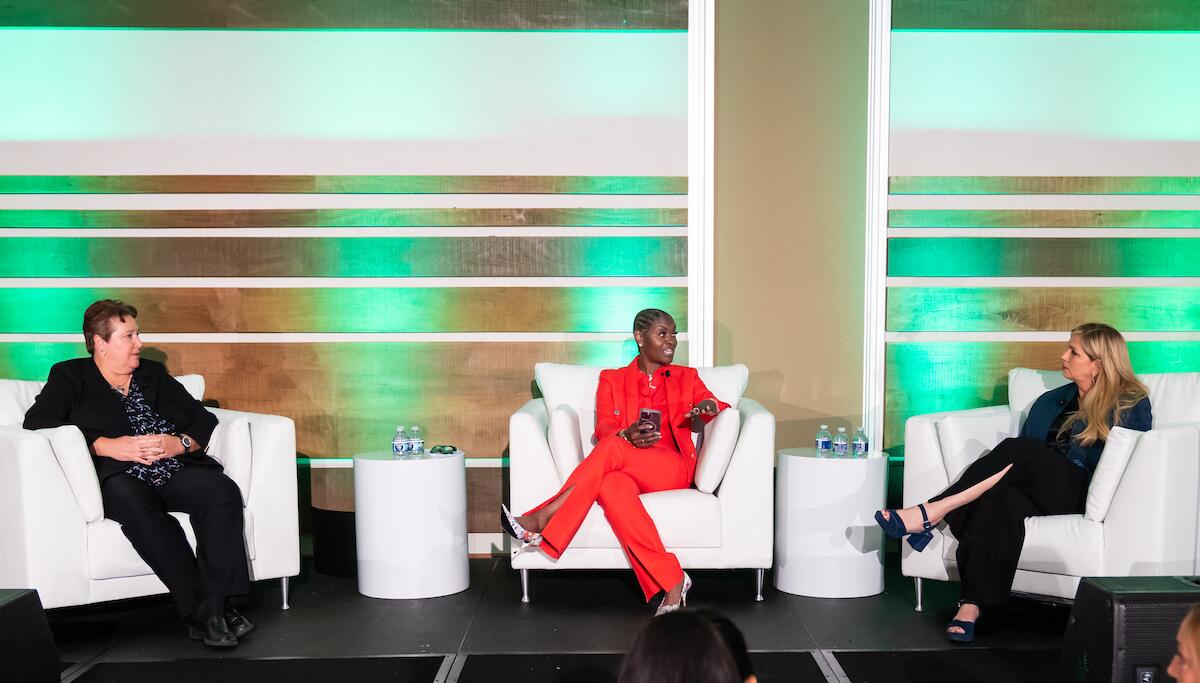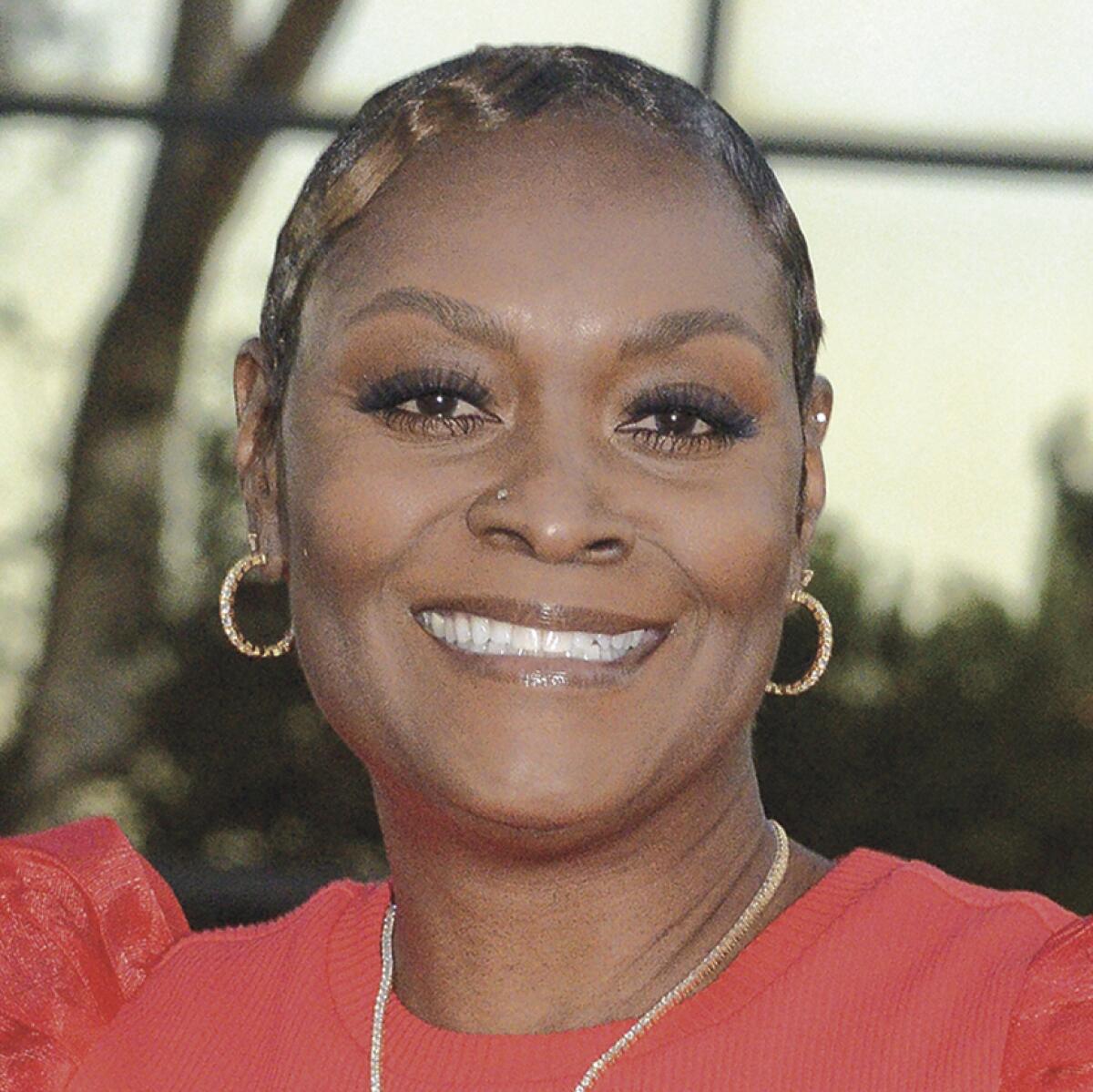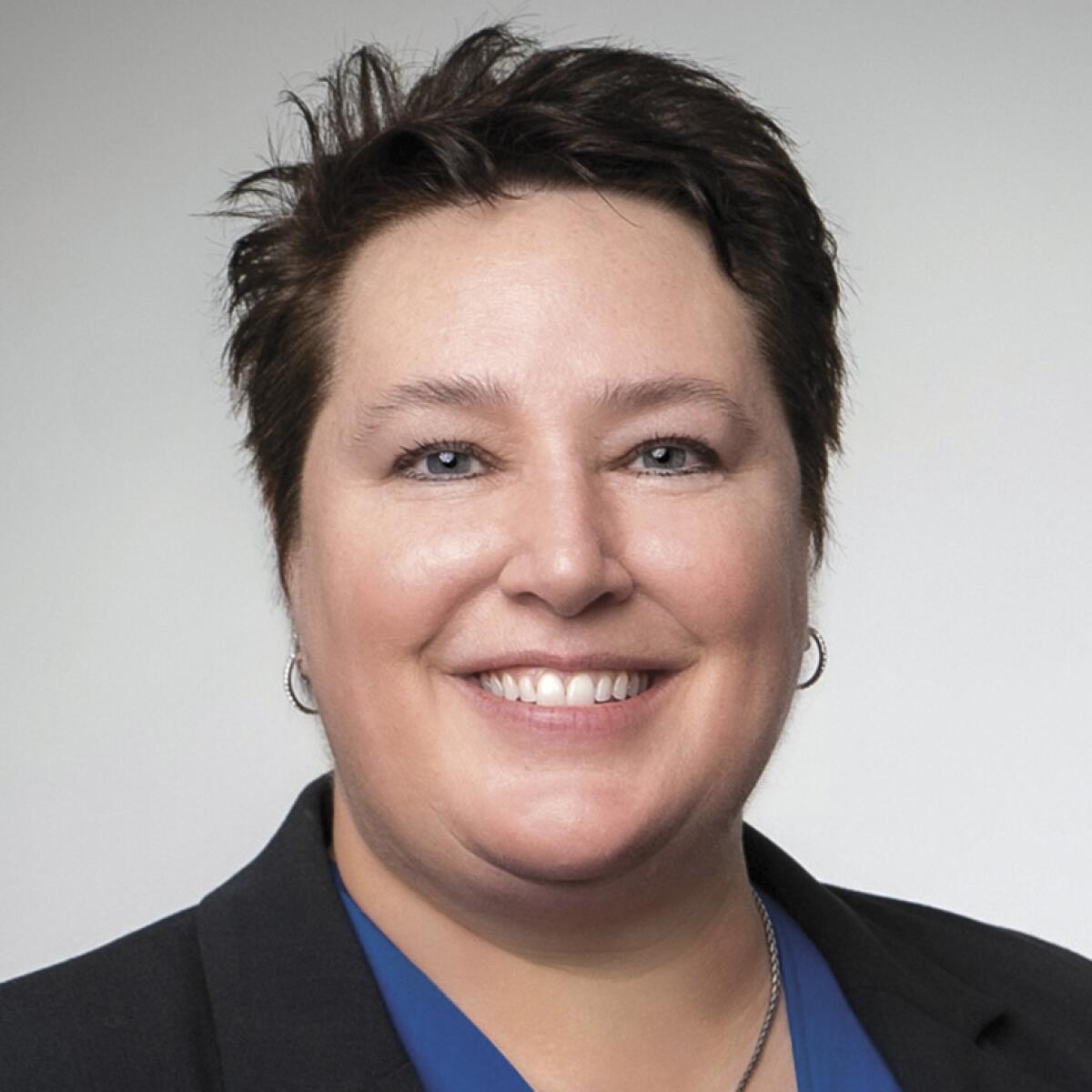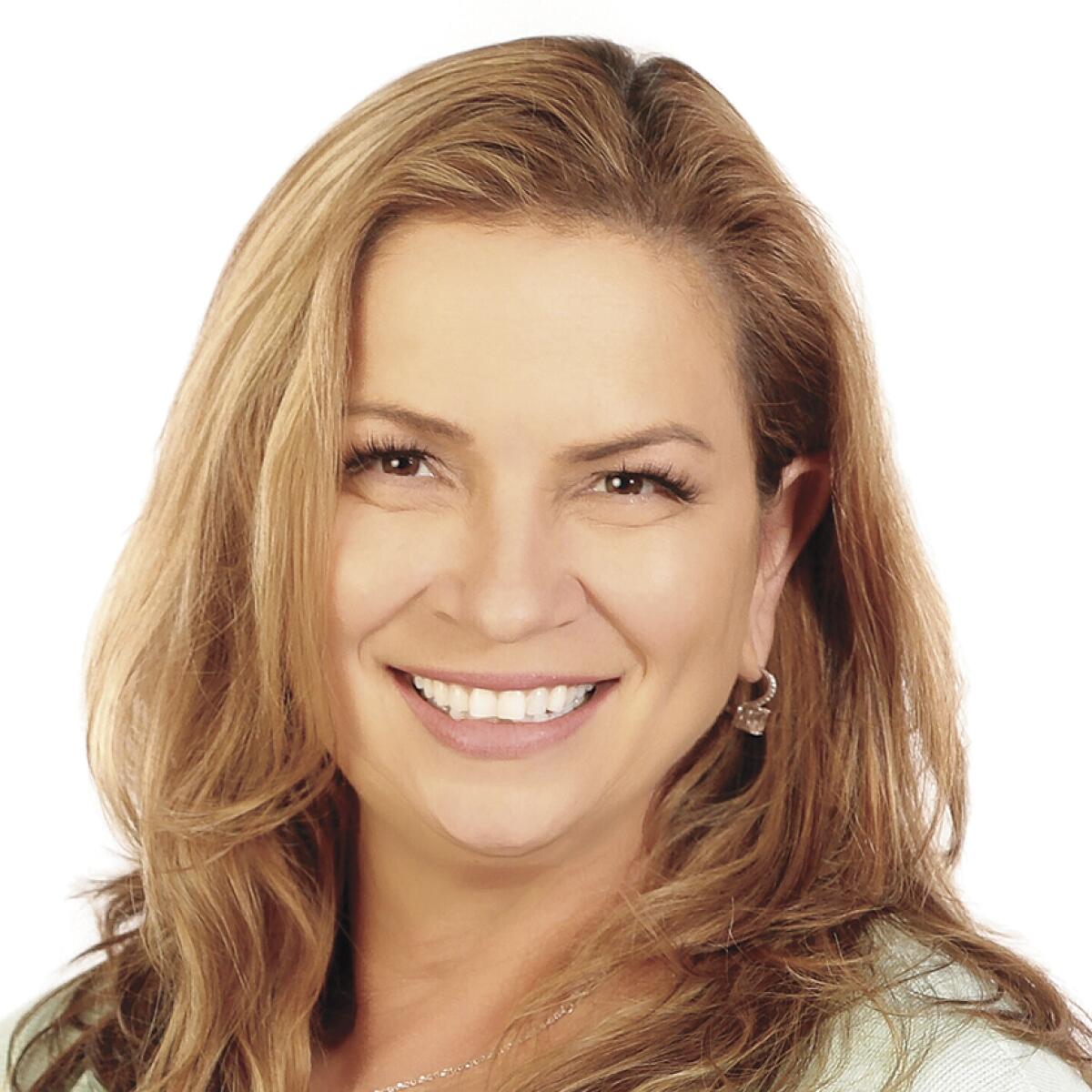Panel: Awareness to Impact – How Organizations Can Support Sustainable Progress for Women in Business

- Share via
In this free-ranging and spirited discussion, moderator Scharrell Jackson and panelists Dr. Shawn Andrews and Dawn Maroney covered a wide range of topics in front of the assembled Orange County crowd. Rather than sticking to a traditional Q & A format, the three participants, each a scion in their discipline, offered up a more relaxed repartee while remaining focused on the issues facing women in the modern work environment. below are some highlights from their talk.

Moderator: Scharrell Jackson
International Keynote Speaker and High-Performance Leadership Coach
Ambitious, high-performing leaders looking for clarity, confidence, and courage elevate to the highest level of success with Scharrell Jackson. She is a top-tier operational and financial executive with over 25 years of corporate experience who is authentic, intimate and powerful. As a highly soughtafter international keynote speaker, leadership coach, and DEI specialist, her transparent approach captivates her audience. She transforms leaders, shifting them to clarity, confidence, and courage, unleashing personal greatness and high-level success.

Panelist: Dr. Shawn Andrews
Founder & CEO – Andrews Research International
Dr. Shawn Andrews is a renowned keynote speaker, organizational consultant, and best-selling author. She’s been featured in Forbes, Chicago Tribune, and NPR, establishing herself as a respected expert in leadership and emotional intelligence. With over two decades of corporate experience, her client list includes prestigious organizations like the United Nations, Johnson & Johnson and GSK. Dr. Andrews employs presentations, workshops, coaching and psychological tools to help leaders grow. As a professor at UC Irvine and Pepperdine, she imparts wisdom on Women and Leadership, Organizational Behavior, Diversity, and Leadership Ethics. Her expertise encompasses Organizational Leadership, Talent Management, Diversity & Inclusion, and Unconscious Bias. Dr. Andrews holds an Ed.D. in organizational leadership, an M.B.A. from Pepperdine and a B.A. in psychology from UC Irvine. She actively contributes to organizations like the Healthcare Businesswomen’s Association and 50/50 Women on Boards, while leading Andrews Research International as CEO.

Dawn Maroney
Markets President, Alignment Health & CEO, Alignment Health Plan
Dawn Maroney, Markets President of Alignment Health and CEO of Alignment Health Plan, is a 30-year veteran in the health plan industry, known for her expertise in Medicare, Medicaid, and underserved markets. She has been a driving force behind Alignment Health’s remarkable growth, achieving eight consecutive quarters of strong performance since its 2021 IPO. In her current role, she oversees all aspects of Alignment Health Plan, from member experience to sales strategy and compliance. Maroney’s focus on innovation is evident in the culturally and linguistically appropriate plans introduced to serve diverse senior populations, with expansions into new markets in 2022 and 2023, now reaching 8.2 million seniors across six states. Under her leadership, Alignment Health has earned accolades, including a coveted 5-star rating from CMS and recognition as a 2023 Best Insurance Company for Medicare Advantage. Maroney is also actively involved in industry organizations, community partnerships, and initiatives to support seniors.
Shared Insights from the Event
ON WORKPLACE CULTURE:
Dr. Shawn Andrews: Culture is everything. It not only sets the tone for a company, but it reinforces our behavior regardless of the policies of the company. But I would also say when it comes to culture specifically, the onus cannot be only on women. Companies have to be intentional and they have to take action. Inclusion is only demonstrated in behaviors. You can have all the policies, procedures, the messaging, but if the employees don’t see behavior and actions from their management team, their leadership - they’re going to see it as lip service.
Dawn Maroney: Culture is really critical. You have a lot of diversity within the employer world or the employee world, and we all spend a great deal of our time at the workplace. Who we hang out with, celebrate with, or weather challenges with is really, really important - to understand that connectivity to that individual in all aspects.
ON SPECIFIC CHALLENGES FOR WOMEN IN THE WORKPLACE:
Scharrell Jackson: Think about the challenges that women have in the workplace as a result of culture - especially now with individuals in hybrid environments at home or returning to work. There are new challenges regarding taking care of your family. The workplace plays a role in how women can deal with these challenges, and then there’s also issues around just feeling like you belong or you’re included.
Maroney: We took our company public a couple of years ago, and I was the only female that was ringing that bell at NASDAQ, right? I didn’t see it as being something different until people brought it up to say, “Wow, how do you feel being the only woman up there?” It’s interesting because why should I feel different? It was just such a celebration to take a company public here in Orange County - and so why can’t we just have that?
ON BUILDING A NETWORK AND CONNECTIONS IN A MALE-DOMINATED WORK WORLD:
Dr. Andrews: Women tend to have larger networks than men that tend to be more diverse, but women don’t always tap into their networks as much as men do. So one thing you can do is simply leverage the vast, diverse network that you already reach out on occasion. Maybe even put it on your calendar to reach out to your contacts that you haven’t spoken to in a long time. Ask them what they’re up to. Ask them how they’re doing. Ask them if there’s anything you could support them in and vice versa.
Jackson: I would also add that I think we also have to take responsibility for our future. In terms of leadership and how we need to be addressed as it relates to the challenges. If you are struggling, and there are high-performance tasks that you have to do productively and it’s impacting your personal life, home life, your relationships - or even you physically, your mental health, or your self-care, we have to amplify our voice. We’ve got to make people aware of the challenges that we’re having, because we have a tendency to believe that somebody knows what we’re going through. In reality, we haven’t told a soul.
Maroney: I always try - in any environment, whether it’s personally, when I’m mentoring others or attempting to mentor others - you really have to care. There’s all of these programs where people talk about mentorship, but they really need to care about mentorship: taking that step, and caring about others. Also, I don’t look at that with just women; I look at that with men or whoever really wants to grow and learn.
ON DEI INITIATIVES:
Dr. Andrews: On DEI, now is not the time to pull back. If anything, we need to recommit. It’s more important now than ever. It absolutely affects women, of course, but our workplaces are getting more diverse every day - we all know that. So companies should reevaluate their DEI goals, recommit to DEI. and communicate that broadly. The other interesting fact I would share is that new data has come out that shows that 95% of people weigh DEI offerings at a company when considering competing job offers.
Jackson: DEI is really not about black versus white, gay versus straight, culture or race - it’s about diversity of thought. When we have individuals around us who can look out for our blind spots, we’re just better. How we approach this, I think, is that it’s really important that we recognize that it’s not just about whether we’re a male versus female or whether we’re a different race. The broader the thought process is at the table, the more effective you are at the bottom line.
ON WORK/LIFE BALANCE IN A HYBRID WORK ENVIRONMENT:
Maroney: When we went into the remote environment, looking at the productivity, it was a challenge for organizations, especially if areas had billable hours. We’re billing for the same level of work at 20% greater than what they were before, and departments required 10 to 15% more from a staffing standpoint by being in the home environment. It becomes a challenge from that perspective that we have to balance it out - how do you make sure that you’re creating an environment that gives support to women employees, but also not being taken advantage of as an employer? There’s just a lot to still work from as a community standpoint to make it all happen, and we’re still learning.
Dr. Andrews: From a personal perspective, there’s tons of data out there on ways to manage your stress and get more exercise and all that. But making it a priority, making self-care a priority and scheduling it is something else entirely. Women often put themselves last - we juggle so many things, so our needs often fall to the bottom. I have found prioritizing it and scheduling balance works the best.